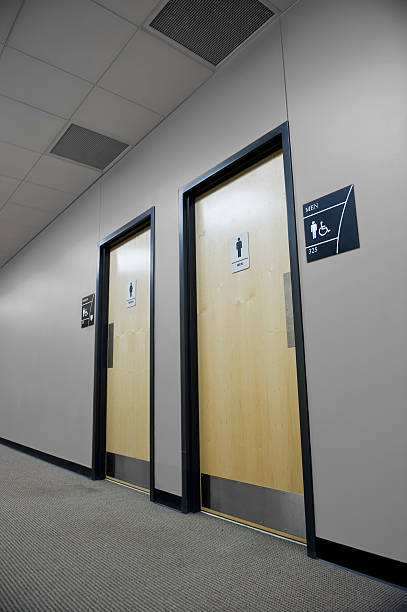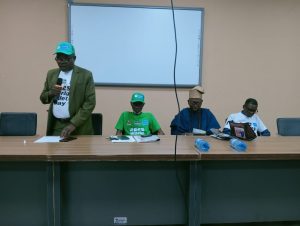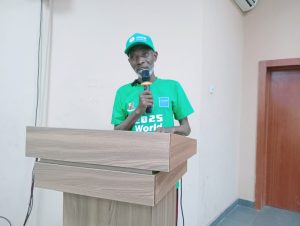‘We’ll Always Need The Toilet’: Oyo Govt, UNICEF, SATO Partner To Promote Safe Sanitation On World’s Toilet Day

The Oyo State Government, through the State Rural Water Supply and Sanitation Agency (OYORUWASSA), in collaboration with the United Nations Children’s Fund (UNICEF), Lagos Field Office, and SATO, a brand under LIXIL, has called on stakeholders to prioritize safe sanitation as a critical tool for disease prevention and environmental protection.
The Chairman of OYORUWASSA, Alhaji Babalola Afobaje, stated this on Wednesday during the 2025 World Toilet Day Celebration held at the Local Government Staff Training School Conference Hall, Secretariat, Ibadan. This year’s theme is “We’ll Always Need the Toilet.”

Afobaje underscored the enduring importance of safe, functional, and dignified sanitation systems in all communities. According to him, toilets are not just facilities but “life-saving infrastructure” essential for public health, environmental protection, climate resilience, and human dignity.
He commended existing partnerships particularly with UNICEF for progress in driving the Open Defecation Free (ODF) campaign across Oyo State. However, he stressed the need for intensified efforts to deliver climate-resilient sanitation systems and achieve a total end to open defecation by 2028.
He acknowledged the role of stakeholders at the event, noting their professional contributions as vital to sustaining safe sanitation services in the face of population growth, rapid urbanization, and climate related challenges.
In his welcome address, the General Manager of OYORUWASSA, Mr. Adeniyi Adeduntan, reaffirmed that access to safe toilets remains a constant necessity, regardless of technological or societal changes. He explained that sanitation must be firmly integrated into long-term planning, budgeting, infrastructure development, and behavioural change initiatives.
Adeduntan highlighted the consequences of inadequate or malfunctioning sanitation systems, which often lead to pollution and disease outbreaks. He noted that women and girls are disproportionately affected through heightened risks of abuse, poor health outcomes, and school absenteeism due to the absence of safe and hygienic toilets.

He emphasized that toilets are a basic human right and form the foundation for public health, gender equality, and sustainable development.
The workshop focused on reviewing the current sanitation and faecal waste management situation in Oyo State, identifying gaps and opportunities, strengthening collaboration among stakeholders and developing actionable strategies to expand toilet access and sustain ODF status across all local government areas.
In a keynote presentation, Mr. Victor Oyejide, Co-founder of Recycledge and Partnership Lead of the Young Water Professionals (International Water Association), called for continuous education and awareness on dignified sanitation. He outlined challenges faced by vulnerable groups especially women, girls, and young people who lack access to clean and comfortable toilet facilities.

Oyejide noted that many schoolgirls miss classes during their menstrual periods due to inadequate WASH facilities. He urged greater government and private sector investment in innovative sanitation solutions, including mobile and static toilet systems. He also encouraged the public to adopt safe toilet practices, maintain personal hygiene, and use protective items such as hand sanitizers, soap, and tissue paper.
He added that sanitation should be viewed not only as a health priority but also as an economic opportunity for innovation and entrepreneurship.
At the end of the workshop, stakeholders expressed confidence that the discussions and new partnerships formed would accelerate efforts toward achieving an Open Defecation Free Oyo State and improve sustainable faecal sludge management across communities.
Follow us for more…